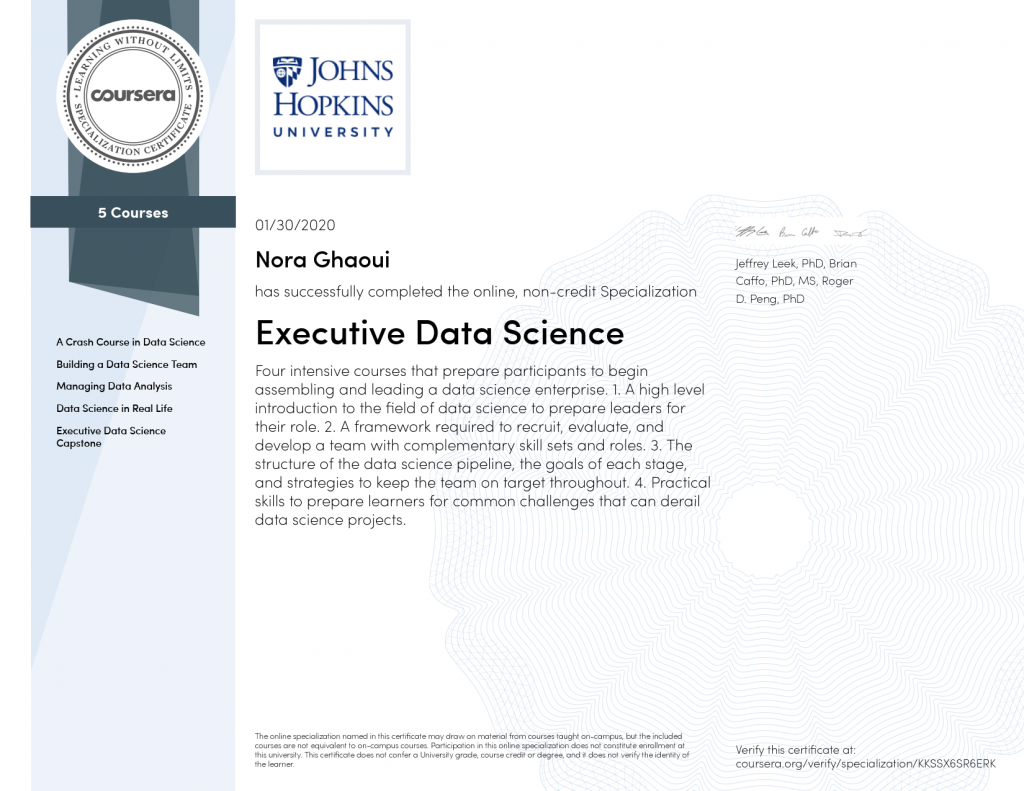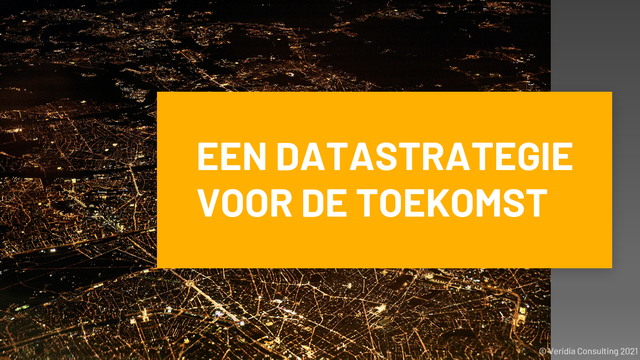I’m very pleased to have completed my second data science course, the Coursera Executive Data Science Specialization! Whereas the first one, Data Science A-Z, was very hands-on about doing the analysis yourself, this course takes a higher-level view of what an executive needs to know to manage a data science team. It focuses on statistics as a core skill for data scientists but does not require you to do any analysis yourself. It also does not include any mathematics.

The course consists of five modules.
- A Crash Course in Data Science gives an overview of what data science is used for, and provides introductions to the topics that will be covered in the later modules. It describes four key activities in data science: exploratory analysis, inference, prediction and machine learning, and experimental design. It also gives a short introduction to the data science team roles and the five phases of a data science project.
- Building a Data Science Team explains what data scientists, data engineers and data science managers do and what skills and capabilities they need to have. It covers how to hire, onboard and manage the data scientists, and how to connect them with the business organisation.
- Managing Data Analysis explains in detail what the stages of a data science project are and how to manage them. It covers how to frame and check the quality of the work, not how to do the analysis itself. It gives tips on what to what out for to make sure the analysis is relevant and if the answer makes sense.
- Data Science in Real Life explains how the real conditions of doing a data science project differ from the ideal setup and what you need to do to compensate for these limitations. It also explains how check if the outcome is valid.
- Executive Data Science Capstone is a simulated exercise in which you act as the data science manager given the task to answer a business question. Your role is to decide who does the analysis and what analysis approach to take to reach an answer.
What I found very interesting was learning about the epicycles of data analysis in a data science project. There are five core activities of data analysis, which can occur at different time scales, from one day to many months:
- Stating and refining the question
- Exploring the data
- Building formal statistical models
- Interpreting the results
- Communicating the results
This course is useful for an executive who is setting up or starting to work with a data science team, as it gives an overview of what that team would look like and how it would approach its work. It does not cover how to create a data strategy or decide what kinds of topics the data science team would work on. If you’re interested in that topic, see my article on managing data science initiatives to get business results.
© 2020, 2025 Veridia Consulting


